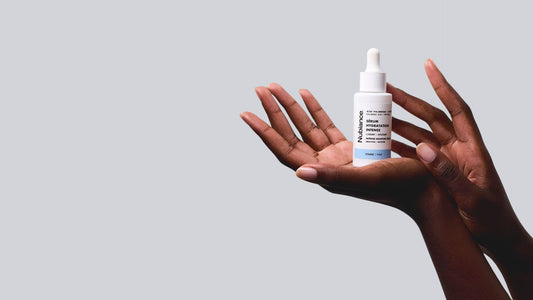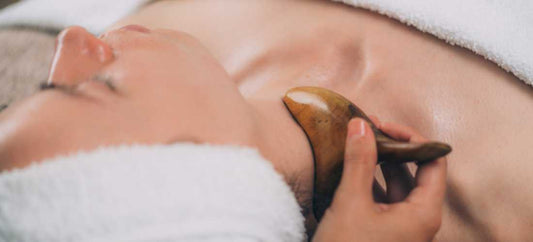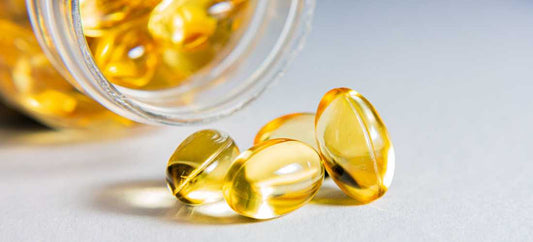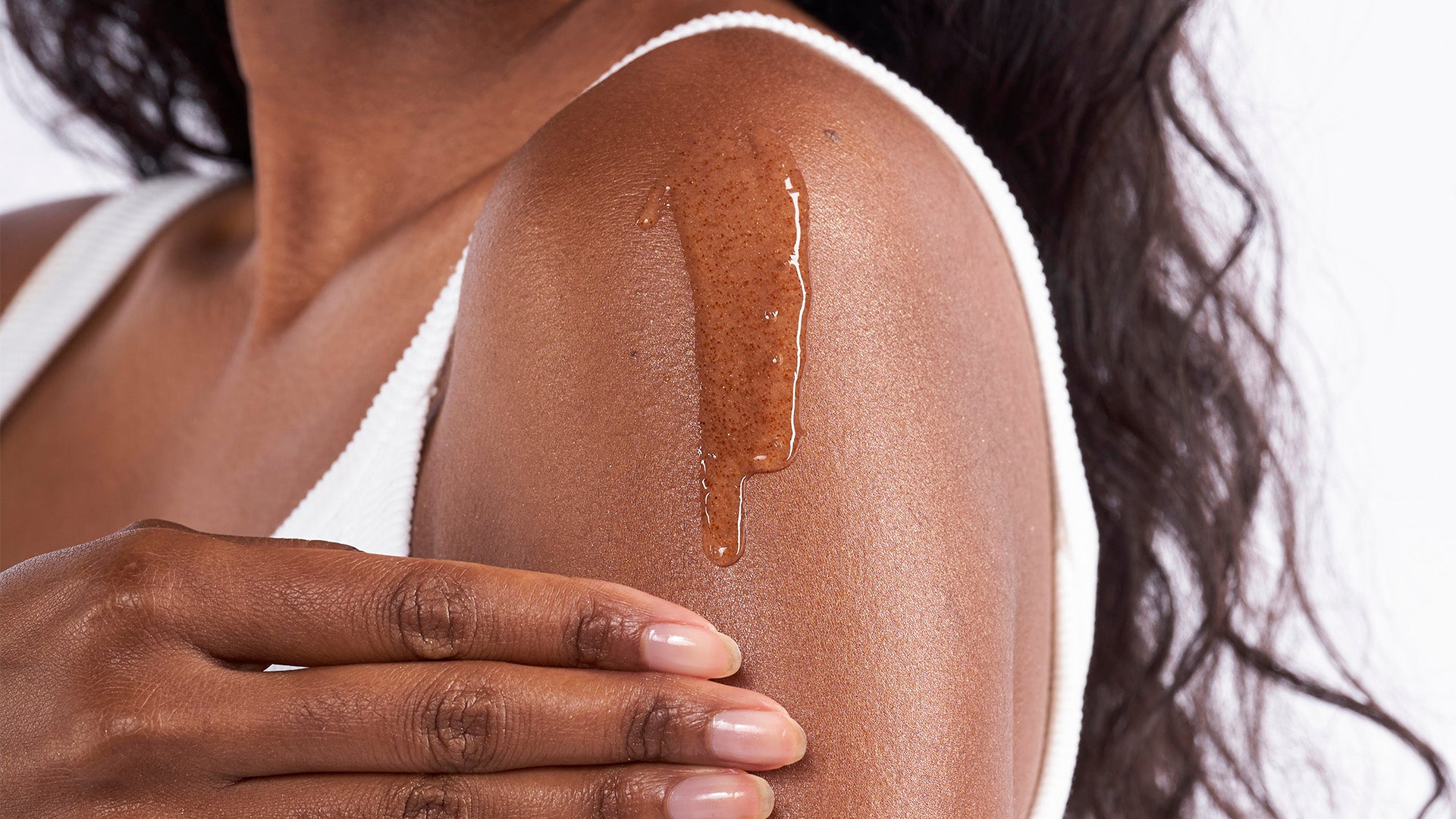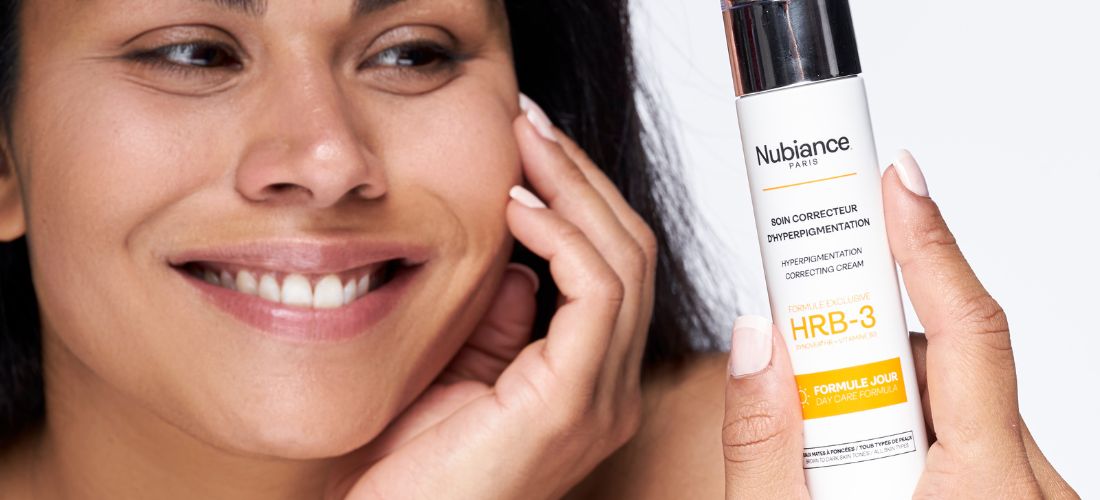
Sun cream and acne: choosing your sun protection wisely
Sommaire
Partager
Overexposure to the sun can cause serious damage to the skin, especially in people with acne. UV rays can aggravate pimples on the face, as well as acne scars, because exposure to the sun strips away natural fats and promotes skin aging. The skin responds by increasing sebum production, which often contributes to the appearance of blemishes and breakouts. By taking the necessary precautions for acne-prone skin, you help maintain radiant, healthy-looking skin.
Acne-prone skin requires greater protection against the sun's rays. In fact, exfoliating treatments remove dead skin, thus exposing the new layers of the epidermis. It is therefore essential to apply a high protection SPF sunscreen when using acne products. And even if you tend to believe that sunscreen boosts the appearance of acne, it is essential to choose one to avoid aggravating the risks on your skin barrier .
The benefits of sunscreen for acne-prone skin
Positive effects on acne-prone skin thanks to the sun have been noted, but they are short-lived and even misleading. Even if the condition of acne-prone skin improves in good weather, this lull does not last.
First of all, the sun dries out the skin. However, a dry epidermis will produce more sebum via the sebaceous glands to compensate for dry skin. This hyperseborrhea is partly responsible for the small spots that can occur after prolonged exposure.
Then, under the effect of the sun and in particular tanning, the skin cells harden and are no longer eliminated naturally. The skin thickens, this is called keratinization. The sebum, unable to evacuate, will form comedones and microcysts.
These two phenomena encountered in summer can be accentuated by heat-related sweating. Sweat creates a favorable environment for the development of the bacteria associated with acne.
This is why acne-prone skin should choose body and face sun protection . Oily skin especially needs a suitable acne sunscreen to avoid blackheads and the appearance of skin inflammation.
Also discover our article on the benefits of sunscreen for black skin .

Choosing the right sunscreen when you have acne
Opt for a non-comedogenic sunscreen
Non-comedogenic sunscreen is a relevant alternative for acne-prone or acne-prone skin. So-called “non-comedogenic” cosmetics are characterized by a light, fluid texture that does not clog the pores of the skin. It is the ideal sun protection for problem skin and imperfections. You can find creams that also include anti-blemish treatment for flawless, sunburn-free skin.
Opt for a tinted or mattifying facial sunscreen
Mattifying sunscreens are particularly aimed at oily or acne-prone skin. Thanks to their powdered finish, they mattify the face while protecting the skin from the harmful effects of UVA and UVB rays.
Opt for a non-greasy sunscreen
Oil-based sunscreens are particularly suitable for dry or sensitive skin. This is where non-greasy sunscreens come in. Thanks to their fluid texture, they hydrate the epidermis while protecting it from the sun's rays.
Opt for an organic sunscreen product
Choosing organic sunscreens protects your skin while preserving the environment. Formulated from natural elements or from organic farming, they do not contain chemicals or other substances harmful to the health of your skin. Without white marks, they are just as effective as traditional protections. Their simple and healthy composition lets the skin breathe without clogging pores, while limiting the risk of pimples appearing.

Managing acne and sun protection simultaneously
So, you are wondering which sunscreen to choose for your acne-prone skin . At Nubiance, we have designed a 2-in-1 day treatment that protects your skin from rays thanks to SPF30 protection, while exfoliating and fading brown spots.
This is our HRB-3 Anti-Dark Spot Treatment . This day cream, with its active ingredients, helps to fade pigmentation spots by slowing down the production of melanin and to concentrate its sun protection thanks to a powerful sun filter. The ingredients in this formula help reduce hyperpigmentation spots on black and mixed skin and guarantee a sunscreen suitable for acne-prone skin.
However, it is important to remember that in the event of prolonged exposure to the sun, you must renew your very high sun protection, up to an SPF50 index if necessary.
Also read our article on the different acne treatments .
The effects of the sun on acne scars
If you have acne spots that are healing, then avoid exposing yourself to the sun while your skin finishes its repair work. Indeed, during this phase, it is thinner and therefore much more sensitive to the harmful effects of UV rays and external aggressions.
Exposing an acne scar to the sun contributes to the risk of damaging the skin fibers, but also of causing brown spots to appear. When healing is in progress, or very recent, it is better to avoid all exposure to the sun and if possible cover your face with a hat, cap or scarf so that your skin can heal properly.
When your skin is attacked, it will produce an excess protective pigment, melanin, responsible for hyperpigmentation spots. Opt for a treatment that is both sun protective and anti-dark spot to gradually reduce the scar, help the skin renew properly, and above all avoid any risk of secondary pigmentation. To do this, find our Anti-Dark Spot Routine - Face & Body which combines hexylresorcinol and vitamin B3. The four treatments guarantee SPF30 protection as well as a real formula to treat your skin's hyperpigmentation problem.
Discover the anti-acne routine in 5 steps .
To conclude, it is important to choose the right sunscreen if you have acne . Think about the protection factor, the non-comedogenic components. The Nubiance treatment formulas are all suitable for application on your face and body when faced with the panic of acne and sun issues.

